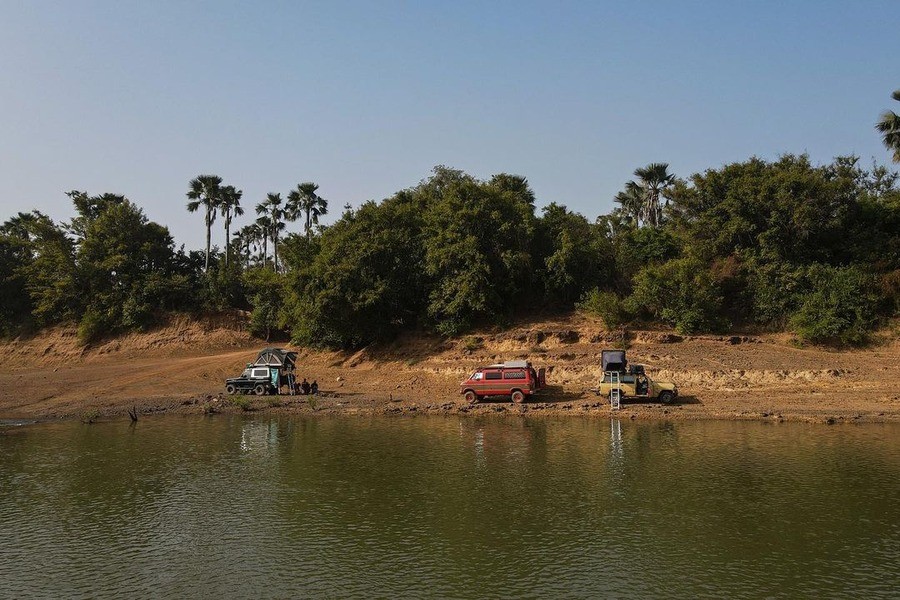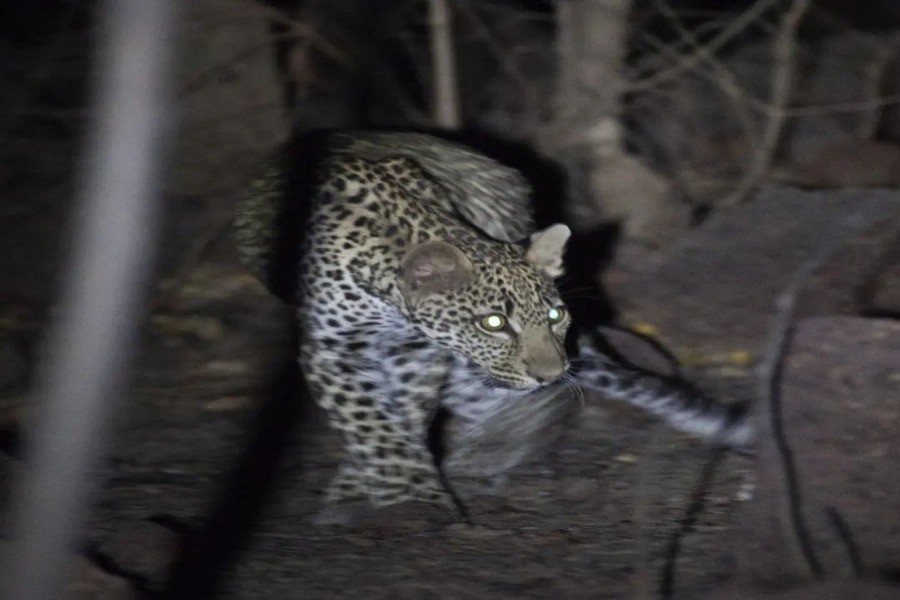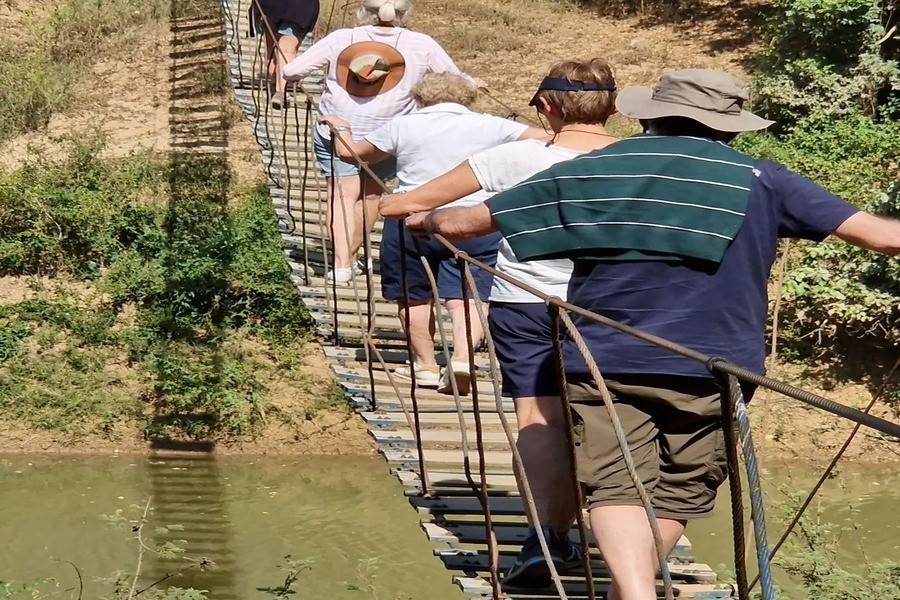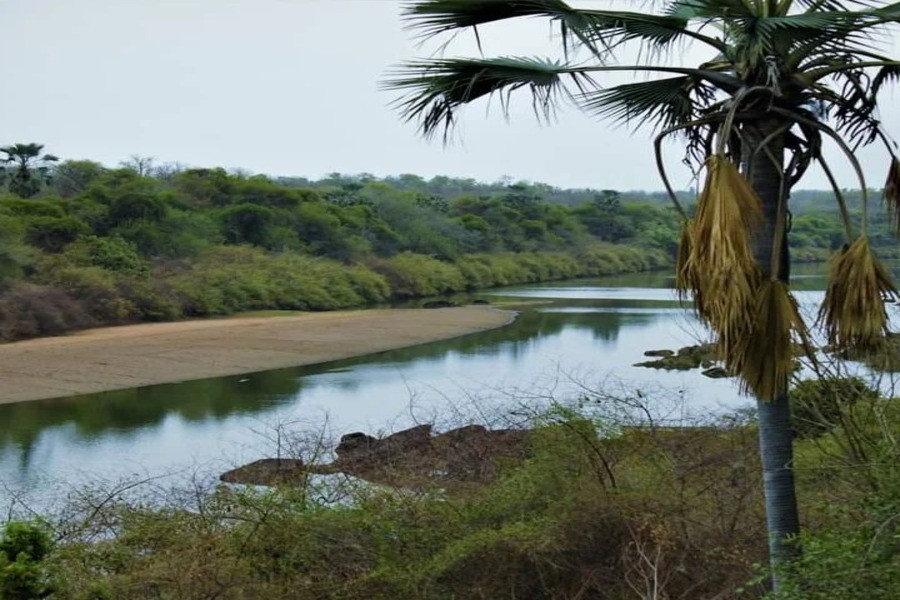The Niokolo-Koba reserve is one of the most important and emblematic protected areas in the world. Senegal. Located in Tambacounda regionIt covers an area of some 9,130 square kilometers. The reserve takes its name from the two main rivers that flow through it, the Niokolo and the Koba. It was created in 1954 and included on UNESCO's World Heritage List in 1981.
The Niokolo-Koba reserve is home to exceptional biodiversity and plays a crucial role in preserving the flora and fauna of the region. the region. It is renowned for its diversity of ecosystems, including forests, savannahs, swamps and waterways. The reserve is home to many iconic animal species, including African elephants, lions, leopards, buffalo, hippos, monkeys and a wide variety of birds.
As a tourist destination, the Niokolo-Koba reserve offers visitors the opportunity to discover the region's natural beauty and observe a diverse range of wildlife in its natural habitat. Safaris, hikes, boat trips and birdwatching are among the popular activities on offer to visitors. Tourism in the reserve contributes to conservation by providing financial resources to support wildlife protection efforts, while generating economic spin-offs for local communities.
Management and conservation of the Niokolo-Koba reserve
The Niokolo-Koba reserve benefits from various initiatives aimed at preserving its unique flora and fauna. Protection and conservation measures are in place to ensure the survival of species and the preservation of ecosystems. These include monitoring animal populations, protecting natural habitats, setting up breeding and reintroduction programs for endangered species, and promoting sustainable natural resource use practices.
Poaching and deforestation are major threats to the Niokolo-Koba reserve. Considerable efforts are being made to combat these illegal activities. This involves stepping up patrols and surveillance to detect and arrest poachers, as well as raising awareness among local communities of the negative consequences of poaching and deforestation. Partnerships are also established with law enforcement agencies and local authorities to reinforce measures against these illegal activities.
Local communities play an essential role in the management and conservation of the Niokolo-Koba reserve. Partnerships are established with these communities to encourage their active participation in the preservation of the reserve. This can take the form of environmental awareness and education programs, training in sustainable natural resource use practices, and sustainable economic development projects that offer communities viable economic alternatives to dependence on the reserve. Involving local communities helps reinforce conservation measures and promote harmonious coexistence between human populations and wildlife.
Tourism in the Niokolo-Koba reserve
The Niokolo-Koba reserve offers many tourist attractions that attract visitors from all over the world. The varied landscapes, ranging from vast plains to winding rivers and dense forests, create an environment conducive to wildlife observation and nature exploration. All-terrain vehicle safaris, walking tours and boat excursions are among the most popular activities, allowing visitors to admire the diversity of wildlife, including iconic species such as elephants, lions and hippos. Bird lovers will also be delighted by the reserve's wealth of bird life.
Appropriate tourist infrastructures are being developed in the Niokolo-Koba reserve to welcome tourists. Lodges, camps and camping sites are being set up to offer comfortable, authentic accommodation in harmony with the natural environment. Visitor centers have been set up to provide information on the reserve, its attractions and its conservation rules. Hiking trails are marked and maintained to enable visitors to discover the beauty of the reserve on foot.
The Niokolo-Koba Reserve focuses on sustainable and responsible tourism. Measures are in place to minimize the environmental impact of tourism, while maximizing the economic and social benefits for local communities. Tourism operators are encouraged to meet sustainability standards, including limiting visitor numbers, promoting environmentally friendly practices and supporting conservation initiatives. Raising visitor awareness is also a priority, to inform them of the importance of preserving nature and respecting the reserve's flora and fauna.
Socio-economic impacts of the Niokolo-Koba reserve
The Niokolo-Koba reserve has a significant impact on the local economy, creating jobs and promoting economic development in the surrounding communities. Managing the reserve requires a skilled workforce, providing employment opportunities for local people. Jobs are created in a variety of areas, including tourism infrastructure management, accommodation and catering services, guiding activities, local handicraft sales and other tourism-related services. This helps to reduce unemployment and improve the livelihoods of local people. Niokolo-Koba plays an important role in preserving the traditions and cultural heritage of local communities. Local people have had close ties with the reserve for generations, and it is an integral part of their cultural identity. Interaction between visitors and local communities fosters cultural exchange, allowing visitors to discover traditional lifestyles, craft practices and cultural celebrations. This contributes to the enhancement and preservation of local traditions, while generating economic opportunities for local artisans and cultural players.
Niokolo-Koba contributes to improving the living conditions of local communities. Sustainable development and responsible tourism initiatives help to reduce the dependence of local communities on the reserve's natural resources, by offering sustainable economic alternatives. For example, training and skills development programs are set up to promote local entrepreneurship and encourage the creation of small businesses in sectors such as sustainable agriculture, handicrafts, ecotourism and services.
Part of the revenue generated by tourism is often reinvested in local communities. This can take the form of socio-economic development projects, such as the construction of schools, health centers, roads and other infrastructure that improve the quality of life for local residents.
Challenges and prospects for the Niokolo-Koba reserve
The Niokolo-Koba reserve faces a number of environmental pressures that present challenges for its long-term conservation. The first concerns habitat fragmentation due to the expansion of human activities, such as agriculture and livestock farming, which can reduce the living space available for wildlife. Conflicts between wild animals and local communities can also occur, notably as a result of livestock predation by wild predators.
Another major challenge is poaching, which threatens the reserve's wildlife. Elephants are particularly targeted for the ivory in their tusks, while other species are illegally hunted for their meat or trophies. The fight against poaching requires reinforced surveillance and protection efforts, as well as effective deterrent measures to put an end to this illegal activity.
To meet these challenges, long-term conservation measures need to be implemented. These include strengthening anti-poaching patrols, improving natural resource management, raising awareness of the importance of conservation among local communities, and promoting sustainable livelihoods that reduce pressure on the reserve.
Strengthening regional and international cooperation is crucial to the preservation of the Niokolo-Koba reserve. Wildlife knows no borders and often migrates between different countries. It is therefore essential to coordinate conservation efforts with neighboring countries and implement cross-border protection strategies to ensure the survival of migratory species.
International collaboration can also play an important role in funding conservation projects, setting up training and capacity-building programs, and exchanging knowledge and expertise in the field of biodiversity conservation. Partnerships between governments, non-governmental organizations, researchers and local players are essential to meet common challenges and share best practices.
Awareness-raising and environmental education are essential aspects of ensuring the conservation of the Niokolo-Koba reserve. It is important to inform visitors, local communities and future generations about the importance of biodiversity, nature conservation and the benefits of sustainable tourism.
Awareness programs can include information campaigns, educational activities in schools, training for tourist guides and community outreach initiatives. The aim is to promote collective awareness and shared responsibility for protecting the reserve. By educating local communities about the economic and ecological benefits of sustainable tourism, it is possible to change attitudes and behavior in favor of conservation.
Real estate in Niokolo-Koba
Current state of the real estate market
The real estate market in Niokolo-Koba is currently developing, but remains relatively limited compared to other more established tourist destinations. Due to the reserve's proximity and growing tourist appeal, there is a growing demand for real estate in the region. However, the supply of real estate remains limited, creating opportunities for the future development of the real estate sector.
Property types available
The types of real estate available in Niokolo-Koba are currently quite limited. The main options include tourist camps, lodges, self-catering cottages and safari accommodation. Establishments such as the Lion Camp and Nioko Lodge are present, but may require upgrading to meet visitor standards and expectations.
Real estate investment opportunities
Real estate investment opportunities exist in Niokolo-Koba, particularly in the development of new tourist accommodation and related infrastructure. Given the growing demand from visitors wishing to discover the reserve, it may make sense to invest in projects to build lodges, eco-camps or luxury accommodations that offer visitors a unique experience.
Future development of the real estate sector in the region
The real estate sector at Niokolo-Koba has great potential for future development. As the reserve grows in popularity, it is likely that demand for quality accommodation and related services will continue to grow. This creates opportunities for expansion of the real estate market, with new investment in tourism infrastructure, restaurants, local craft stores and other related facilities.
The Niokolo-Koba reserve is important for biodiversity conservation and regional development. It is home to many endangered species and helps maintain the ecological balance. Tourism generates income for local communities and supports economic development. It is essential to strike a balance between tourism, conservation and the needs of local communities. The real estate sector can support sustainable development by investing in quality tourism infrastructure, minimizing environmental impacts and creating local jobs.




















